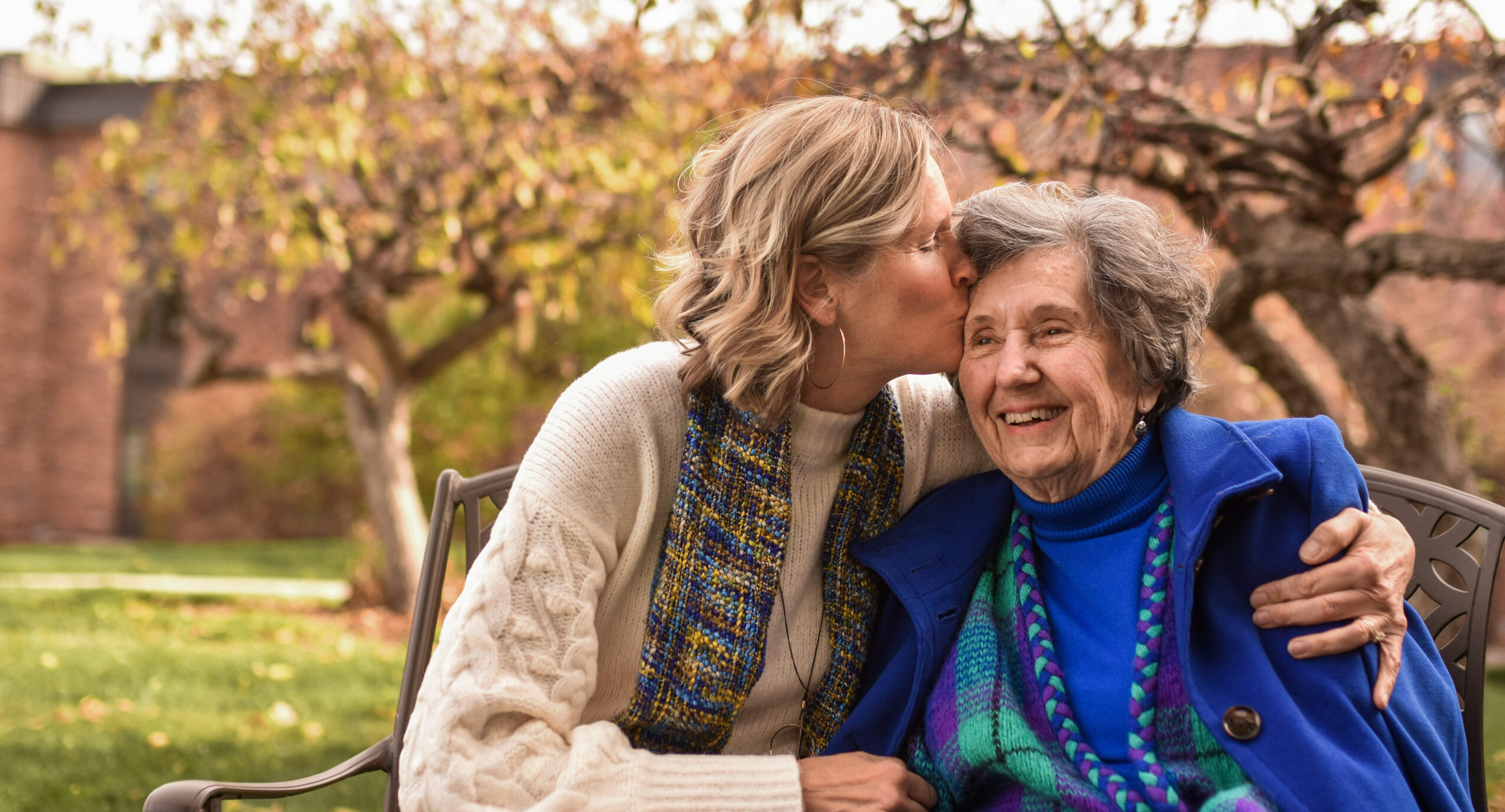What is dementia?
Dementia is more than memory loss. It is a collection of symptoms caused by the misfiring, deterioration, or death of brain cells that ultimately leads to brain change. Dementia is a complex and varied disease. In total, there are over 120 different forms of dementia, including Alzheimer's, and each form can have different progressions and affect individuals differently.What is a Positive Approach to Care?
Focused on changing the culture around dementia care, a Positive Approach to Care® offers strategies and skills to help enhance the lives of those living with brain change. Authenticity, compassion, curiosity, and empowerment are some of the driving tenets behind this approach. As a PAC-designated organization, we utilize their teachings and techniques while caring for persons living with dementia here at Holland Home.How can you help loved ones living with dementia?
It can be extremely difficult to see a loved one going through the changes that dementia brings, but the most important thing to remember is to try and be empathetic and compassionate. The agitation, confusion, and frustration they are displaying is the result of a changing brain that they have no control over. When interacting with them, always try to come from a place of understanding and awareness. Don’t attack or harass! Below are ways you can handle some common scenarios:Not Being Recognized
If you walk into a room and your loved one doesn’t recognize you, don’t try to shake the memory out of them. Saying, “it’s me, it’s me, don’t you remember me?” is not going to help. Instead, try bringing up a positive memory that the two of you share without mentioning names. For example, if you and your loved one spent summers together at the family lake house, you could say, “Have you ever been to Lake ABC? I used to spend my summers there as a kid.” If they make a connection in any way, that’s a win! If they don’t, don’t push it, and try not to overcorrect them if they make a mistake.Constant Questions
It can be frustrating to be asked the same questions over and over again. Rather than growing angry and saying, “I’ve already told you!”—interject and introduce a new topic. For example, if your loved one is asking yet again what time you are leaving, say, “Hey, Mom, I wanted to show you this new thing I got.” Distract them and take their mind somewhere else, away from the question that is on their mind.Someone in Denial
So your loved one has just been diagnosed with dementia. Although, they don’t feel like this is correct. As always, don’t attack. Ask them what they think is going on and suggest treating those issues. Do they feel their brain is just overloaded? Ok, let’s work on stress management. Are they not getting quality sleep? Well, then, let’s try to work on that. 50% of people with dementia have damage to the front of the brain, the area that helps with self-awareness. So, if they are having trouble dealing with the new diagnosis, is it denial, or is it actually brain damage manifesting as denial?
"Just like gems, each person is precious, valuable, and unique, and given the right setting and care, can shine.”
- Teepa Snow

